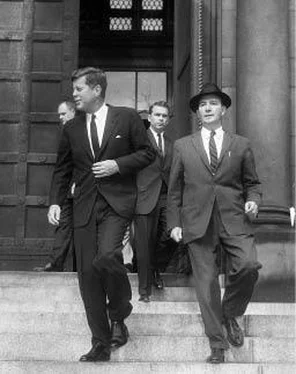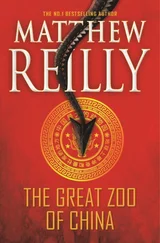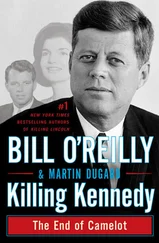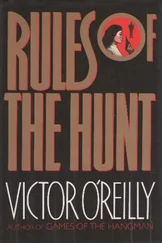O’Reilly, Bill - Killing Kennedy
Здесь есть возможность читать онлайн «O’Reilly, Bill - Killing Kennedy» весь текст электронной книги совершенно бесплатно (целиком полную версию без сокращений). В некоторых случаях можно слушать аудио, скачать через торрент в формате fb2 и присутствует краткое содержание. Год выпуска: 2012, Издательство: Henry Holt and Company, Жанр: Старинная литература, на английском языке. Описание произведения, (предисловие) а так же отзывы посетителей доступны на портале библиотеки ЛибКат.
- Название:Killing Kennedy
- Автор:
- Издательство:Henry Holt and Company
- Жанр:
- Год:2012
- ISBN:нет данных
- Рейтинг книги:5 / 5. Голосов: 1
-
Избранное:Добавить в избранное
- Отзывы:
-
Ваша оценка:
- 100
- 1
- 2
- 3
- 4
- 5
Killing Kennedy: краткое содержание, описание и аннотация
Предлагаем к чтению аннотацию, описание, краткое содержание или предисловие (зависит от того, что написал сам автор книги «Killing Kennedy»). Если вы не нашли необходимую информацию о книге — напишите в комментариях, мы постараемся отыскать её.
Killing Kennedy — читать онлайн бесплатно полную книгу (весь текст) целиком
Ниже представлен текст книги, разбитый по страницам. Система сохранения места последней прочитанной страницы, позволяет с удобством читать онлайн бесплатно книгу «Killing Kennedy», без необходимости каждый раз заново искать на чём Вы остановились. Поставьте закладку, и сможете в любой момент перейти на страницу, на которой закончили чтение.
Интервал:
Закладка:

Joseph Kennedy with sons Joseph Kennedy Jr. and John F. Kennedy in Palm Beach in 1931. Joseph Kennedy expected his eldest son would be the one to go into politics. (Photograph by E. F. Foley, John F. Kennedy Presidential Library and Museum, Boston)
The rest of the crew finally arrives. They hide in the shallows as a Japanese barge passes within a few hundred yards. Kennedy is collapsed in the shade of nearby bushes, exhausted from the swim and nauseated from swallowing all that seawater. Yet, despite his weakened condition, something is different about him. The man who once shied away from leadership has realized that only he can save his crew.

JFK rises to his feet and gets to work.
* * *
Kennedy looks toward the beach. The sand is off-white and slopes into the water. The men have sought shelter under low-hanging trees. With a sense of relief, he sees that nearby lies a large bundle wrapped in a kapok life vest, something the men salvaged from PT-109. Kennedy needs that package for what he is about to do next.
Inside the bundle is a ship’s lantern. Kennedy staggers to his men and outlines a plan: he will swim to another nearby island, which is closer to a channel known as the Ferguson Passage, a popular route for the patrol torpedoes, and will use the lantern to signal any passing PT boats that might venture their way in the night. If Kennedy makes contact, he will signal to his crew with the lantern.
Kennedy prepares for the swim. He is still on the verge of vomiting, and is now also light-headed from dehydration and lack of food. He peels off his shirt and pants to save weight, and ties a .38-caliber pistol to a lanyard around his neck. He had stripped off his shoes and tied them around his neck before the long swim from PT-109, but now puts them back on to save his feet from being cut on the sharp reef. Finally, Kennedy hugs the kapok vest tightly around his naked body, knowing that the lantern wrapped inside it is the key to their rescue.
Kennedy steps back into the sea. He thinks of the giant barracuda that live in these waters, which are rumored to swim up out of the blackness and bite off the genitals of passing swimmers. Without pants, he is surely an inviting target.
Kennedy swims alone into the night until his shoes scrape against a reef. He makes his way along the sharpened surface, searching for that inevitable moment when the reef ends and the sandy beach begins. But the reef is endless. Even worse, the coral slices his hands and his legs time and again. Whenever Kennedy takes a misstep and plunges underwater into some unseen hole, his mind immediately races to thoughts of barracuda.
Kennedy never finds that sandy beach. So, tying his shoes to his life belt, he undertakes a courageous and slightly foolhardy alternate course of action: he swims out into open water, lantern held aloft, hoping to signal a passing PT.
But on this night, of all nights, the U.S. Navy is not sending patrol torpedo boats through the Ferguson Passage. Kennedy treads water in the utter blackness, waiting in vain for the sound of muffled propellers.
He finally gives up. But when he tries swimming back to his men, the currents work against him. He is swept far out into the Blackett Strait, frantically lighting the lamp to signal his men as he drifts past. They argue among themselves as to whether the lights they’re seeing are an illusion brought on by hunger and dehydration, even as their skipper slips farther and farther into the utter blackness.
John Kennedy pries off his heavy shoes and lets them fall to the sea bottom, thinking that the reduced drag will allow him to swim more easily. It doesn’t. He drifts farther and farther out into the Pacific. No matter how hard he swims, the currents push him in the other direction. Finally, he stops fighting. Alone in the dark, his body now cold and his mind a jumble of conflicting thoughts, Kennedy bobs lifelessly. He is an enigmatic man. Despite his reputation for bedding as many girls as possible, he was raised in a Roman Catholic household. His faith has faltered in recent months, but it now serves him well. Even though his situation seems impossible, Kennedy has hope.
And he never lets go of his lamp.
* * *
Kennedy floats, as alone and powerless as a man can be, all night long. The skin of his fingers wrinkles, and his body grows even colder.
But it is not his time to die. Not yet. As the sun comes up, Kennedy is stunned to realize that the same currents once pulling him out to sea have now spun around and deposited him right back where he started. He swims back safely to his men. After hours as a beacon in the darkness, the lamp finally extinguishes itself once and for all.
Days pass. Kennedy and his men survive by choking down live snails and licking moisture off leaves. They name their home Bird Island because of the abundance of guano coating the tree leaves. Sometimes they see aircraft dogfighting in the skies, but they never spot a rescue plane. Indeed, even as they struggle to survive, their PT brethren hold a memorial service in their honor.
After four days, Kennedy persuades George Ross of Highland Park, Illinois, to attempt a swim with him. This time they head for an island named Naru, where it is very possible they will run into Japanese soldiers. At this point in their ordeal, with the men’s bodies racked by hunger and excruciating thirst, capture is becoming preferable to certain death.
The swim lasts an hour. At Naru, they come upon an abandoned enemy barge and see two Japanese men hurriedly paddling away in a canoe. Kennedy and Ross search the barge for supplies and find water and hardtack biscuits. They also discover a small canoe. After spending the day in hiding, Kennedy leaves Ross on Naru and paddles the one-man canoe out into the Ferguson Passage. No longer in possession of a lantern or other means of signaling a passing PT, JFK is now desperate, taking crazy gambles. And yet, despite long odds, he once again makes it through the night, paddling the canoe back to his men.
Finally, he receives a bit of good news. The men he mistook for Japanese soldiers were actually local islanders. They had spotted Kennedy and Ross, and then paddled to PT-109’s crew to warn them about Japanese forces in the area.
Kennedy meets these islanders in person the next morning, when his canoe founders on the way back to Naru. These highly experienced men of the sea come out of nowhere to pluck him from the Pacific and paddle him safely to George Ross. Before the islanders depart, Kennedy carves a note into the shell of a fallen coconut: “NAURO ISL … COMMANDER … NATIVE KNOWS POS’IT … HE CAN PILOT … 11 ALIVE … NEED SMALL BOAT … KENNEDY.”
With that cryptic message in their possession, the natives paddle away.
* * *
Night falls. Rain pours down. Kennedy and Ross sleep under a bush. Their arms and legs are swollen from bug bites and reef scratches. The islanders have shown them where yet another canoe is hidden on Naru, and Kennedy insists to Ross that they paddle back into the open sea one more time in search of a PT.
Only now the Pacific isn’t placid. The rain turns torrential. The seas are six feet high. Kennedy gives the order to turn back, only to have the canoe capsize. The two men cling to their overturned boat, kicking as hard as they can to guide it toward land. Giant waves now pound against the reef. Kennedy is torn from the canoe. The sea’s force holds him under and spins him around. Yet again he believes he is near death. But just when it seems all is lost, he comes up for air. He battles his way onto the reef. Ross is nearby, alive. As the rain pours down, they pick their way across the sharp coral and onto the beach, once again slicing open their feet and legs. This time there are no thoughts of barracuda, only survival. Too exhausted to care about being seen by the Japanese, they collapse onto the sand and sleep.
Читать дальшеИнтервал:
Закладка:
Похожие книги на «Killing Kennedy»
Представляем Вашему вниманию похожие книги на «Killing Kennedy» списком для выбора. Мы отобрали схожую по названию и смыслу литературу в надежде предоставить читателям больше вариантов отыскать новые, интересные, ещё непрочитанные произведения.
Обсуждение, отзывы о книге «Killing Kennedy» и просто собственные мнения читателей. Оставьте ваши комментарии, напишите, что Вы думаете о произведении, его смысле или главных героях. Укажите что конкретно понравилось, а что нет, и почему Вы так считаете.











